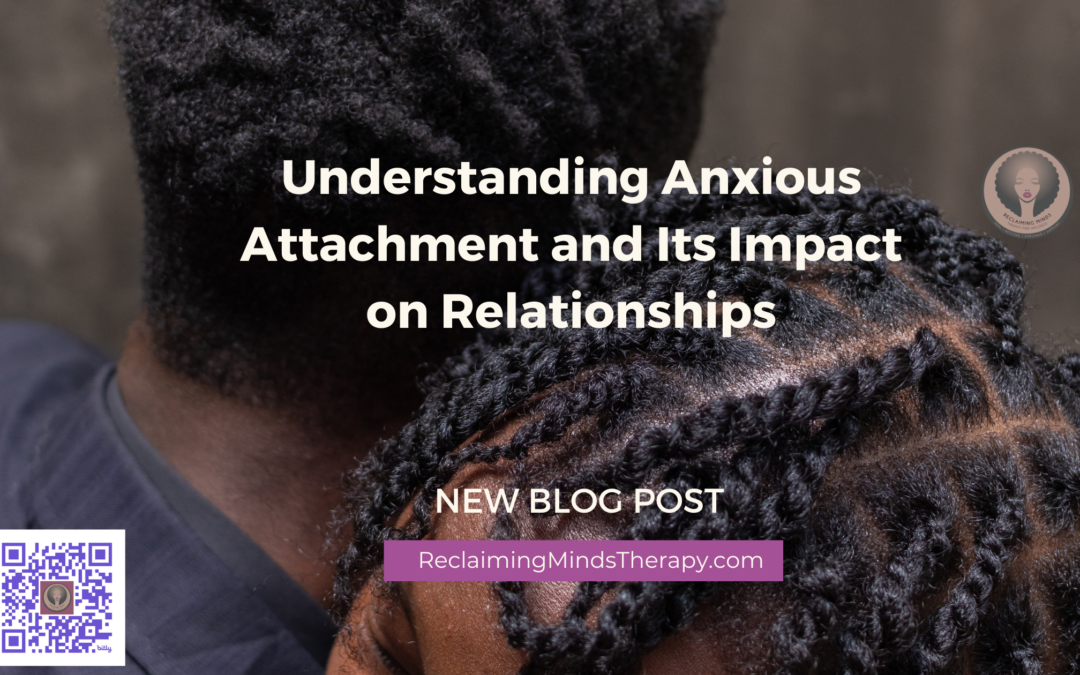As the owner and executive director of Reclaiming Minds Therapy and Wellness, I am constantly exploring the myriad ways attachment styles influence our interactions and relationships. Today, I want to delve deep into one particular style—anxious attachment—and discuss how it can shape our connections with others.
What is Anxious Attachment?
Anxious attachment is a style formed early in life, often rooted in inconsistent parenting. Individuals with this attachment style may have experienced caregivers who were sometimes attentive and nurturing, but at other times, unavailable or unresponsive. As a result, those with anxious attachment may grow up feeling uncertain about the reliability of close relationships.
Signs of Anxious Attachment in Relationships
People with an anxious attachment style often seek high levels of intimacy and approval from their partners, fearing rejection and abandonment. Here are a few signs that someone might be anxiously attached:
– Sensitivity to Partners’ Actions:They are highly attuned to their partner’s moods and actions, sometimes interpreting even minor changes as signs of problems in the relationship.
– Fear of Separation: They experience intense fear that loved ones will leave them, which can lead to clingy or dependent behavior.
– Need for Reassurance: They seek constant validation and reassurance from their partners to quell their insecurities.
The Ripple Effects on Relationships
This attachment style can strain relationships in several ways:
– Emotional Volatility: The relationship can endure a rollercoaster of emotions, from euphoria when things go well to deep despair at signs of trouble.
– Conflict Escalation: Anxiously attached individuals might initiate conflicts out of fear of indifference or detachment from their partner.
– Stifling of Independence: Both parties may struggle with maintaining their independence, leading to feelings of being smothered or trapped.
Moving Toward Secure Attachment
The journey from anxious attachment to a more secure attachment involves self-awareness, healing, and growth. Here are a few strategies that can foster a healthier attachment style:
– Self-Reflection:Understanding one’s attachment style can clarify the reasons behind certain behaviors in relationships.
– Therapy and Support: Engaging in therapy, particularly with techniques like EMDR or Brainspotting, can address the root causes of attachment anxieties.
– Communication Skills: Learning to communicate needs and feelings openly and calmly can reduce misunderstandings and build trust.
Join Our Therapeutic Book Club
In line with our commitment to providing support and education, Reclaiming Minds is excited to introduce the new book for our Journey to Wellness Therapeutic Book Club: Anxiously Attached By: Jessica Baum,LMFT. This book selection is specifically for those looking to explore their attachment styles and improve their relational dynamics. Through thoughtful readings and guided discussions, we aim to empower participants with knowledge and tools to foster healthier, more secure relationships.
This selection will explore the foundations of attachment theory and provide practical advice for transforming anxious attachments into secure ones. Participants will gain insights not only into their behaviors but also into those of their partners, paving the way for mutual understanding and growth.
If you’re interested in joining or learning more about the Journey to Wellness Therapeutic Book Club, please reach out to us. Let’s embark on this journey of self-discovery and relationship enhancement together.
At Reclaiming Minds Therapy and Wellness, we are dedicated to supporting the mental wellness of BIPOC women. We believe in nurturing relationships that promote a secure, healthy attachment style, allowing every individual to thrive in love and life.


Recent Comments